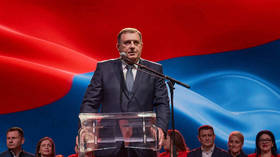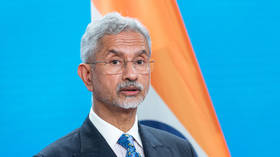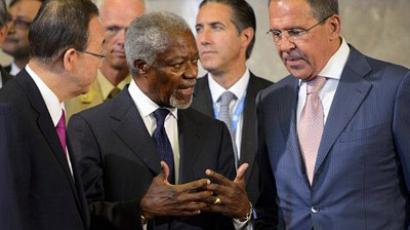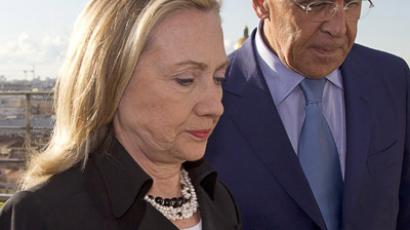Diplomatic tightrope: US stepping up war of words over Syria?
Hillary Clinton’s demand that Russia and China pay the price for “blockading” the Syrian peace process may lead to more global strife. Will opposition to US policy now equate to supporting tyranny and evil?
On Friday, Friends of Syria sought ways to press a transition plan on official Damascus. Assad regime officials forming a unity government with the opposition to lead the Arab country to presidential elections had been a key outcome of global talks in Geneva the previous week.In a sudden turn, US Secretary of State Hillary Clinton pounced on Moscow and Beijing for “holding up progress” in the Syrian crisis. Clinton urged the 100-plus nations gathered in Paris to make it clear to Russia and China that the two will “pay a price” for supporting the Assad government.Russia denied taking sides in the Syrian conflict, adding that the West is operating within an “outmoded” friend-or-foe framework.The Geneva talks on Syria were largely viewed as a diplomatic breakthrough in the global peace effort that had been divided by Washington’s and Moscow’s approaches. Russia has been consistently talking of resolving the Syrian crisis through negations without foreign involvement, which was realized in the Geneva resolution.But the Paris meeting revealed that the US may still be holding to its own solution for the Syrian problem, and is not prepared to compromise, says Mark Almond, a professor of international relations at Bilkent University in Turkey.“Mrs. Clinton is converting a regional problem, a crisis [among] Syria and its neighbors, into a potentially global problem,” Almond told RT. “Those countries that do not agree with every word of Mrs. Clinton are to be considered supporters of tyranny and enemies of good. This is creating a much more dangerous global answer.”Clinton’s recent statement seems to backtrack on the global consensus hammered out in Geneva. Still, it may prove to be even more significant than it appears. “This seeming turning-around would be bewildering, if there were a sense that the agreement which was reached last week was what Friends of Syria actually wanted to play out in the Arab country. This proves once again that from the outset of this crisis, the end goal was to remove Bashar Al-Assad and his government,” James Corbett, the editor of news website The Corbett Report, told RT. Moscow and Beijing have twice vetoed UN Security Council action on Syria, with Moscow opposing the one-sided rhetoric that made Assad the sole guilty party and source of violence in the country. Beijing insists that all opinions in the UNSC should be brought to common ratio before going to sanctions or military action.“Maybe Mrs. Clinton is simply speaking out of frustration at the fact that her policies have not yet achieved the goal of overthrowing Assad,” Professor Almond argued, adding that Clinton is known for using harsh rhetoric towards people she does not like.Before the Geneva talks, Clinton went through a tough round of preparatory negotiations with Russia’s Foreign Minister Sergey Lavrov. Emerging from the closed doors, Lavrov tentatively spoke of a “feeling” that Clinton’s position had changed. Later, in Switzerland, experts hailed a victory for Russia’s diplomacy.“[In Paris,] Clinton went on to call on 60 other nations in the Friends of Syria group to join in on the action – to make China and Russia understand that they will feel some blowback for their actions towards Syria,” says Corbett. “This indicates the US does not have much diplomatic leverage to use directly against Russia and China.”Back in Switzerland, Clinton voiced confidence that Assad or his officials would never enter a transition government, as they would not survive “a mutual consent” test. Still, experts fear that forming a unity government solely out of opposition members would only escalate violence in the country, adding more victims to the UN estimated 15,000 lives lost throughout the 16-month conflict.“Since the opposition consists of Sunnis, what we will inevitably see play out is a strong reaction, and potentially a massacre of Shiites and Alawites, not to mention the Christian population. So there has to be a solution that involves a power balance,” Corbett concluded.















